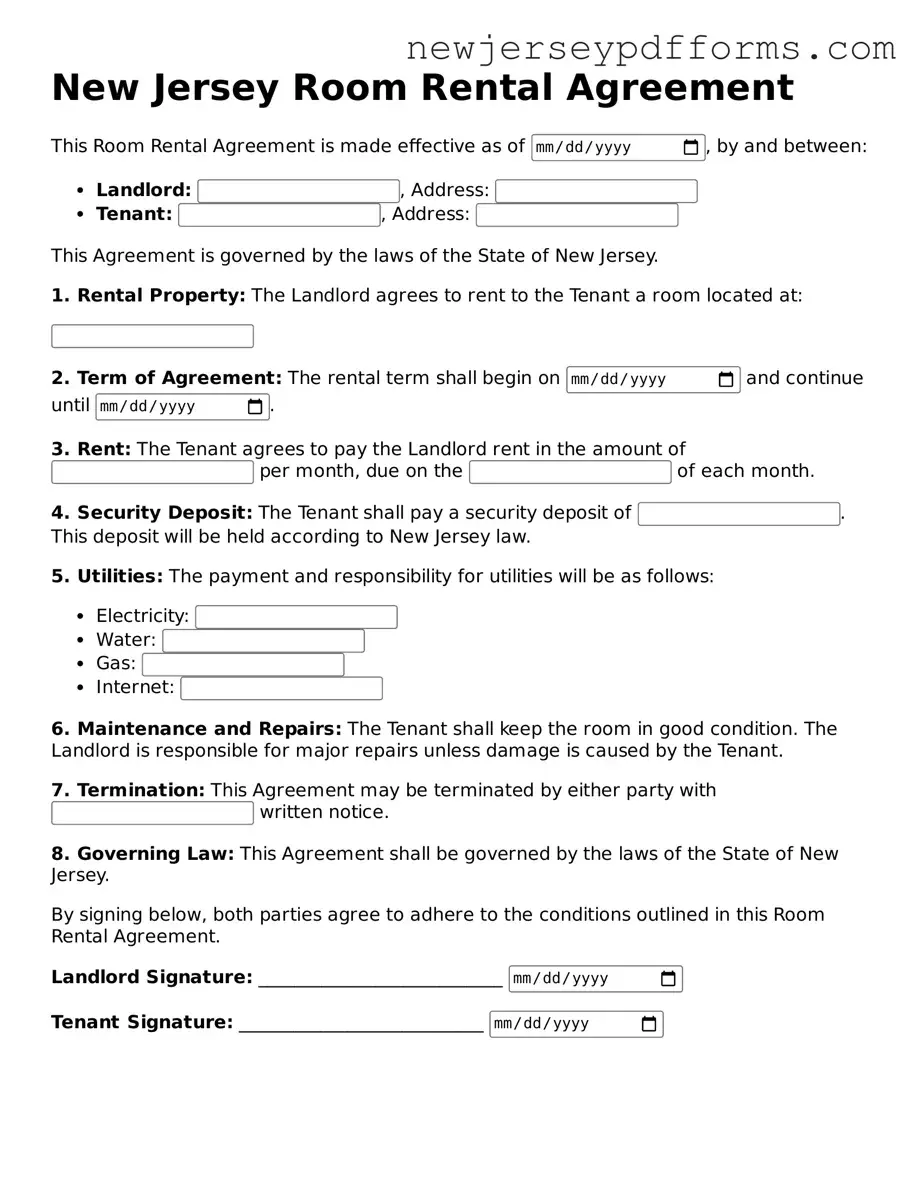What is a New Jersey Room Rental Agreement?
A New Jersey Room Rental Agreement is a legal document that outlines the terms and conditions between a landlord and a tenant for renting a room within a residential property. This agreement specifies the rights and responsibilities of both parties, including rental payments, duration of the lease, and rules regarding the use of common areas.
What should be included in the Room Rental Agreement?
The agreement should detail essential information such as the names of the landlord and tenant, the address of the rental property, the rental amount, payment due dates, and the duration of the rental period. Additionally, it should outline the security deposit amount, maintenance responsibilities, and any specific rules regarding the use of shared spaces, such as kitchens or bathrooms.
Is a Room Rental Agreement required by law in New Jersey?
While a written Room Rental Agreement is not legally required in New Jersey, it is highly recommended. Having a formal agreement helps protect both the landlord and tenant by clearly defining expectations and reducing the likelihood of disputes. In situations where no agreement exists, state laws will govern the landlord-tenant relationship, which may not be as favorable as a custom agreement.
Can a Room Rental Agreement be verbal?
Yes, a Room Rental Agreement can be verbal. However, verbal agreements can lead to misunderstandings and are harder to enforce. It is advisable to have a written agreement to ensure that both parties are on the same page regarding the terms of the rental arrangement.
What happens if the terms of the Room Rental Agreement are violated?
If either party violates the terms of the Room Rental Agreement, the other party may have the right to take action. This could include terminating the agreement, seeking damages, or pursuing eviction in the case of the tenant not adhering to the agreed-upon rules. It is important to follow the proper legal procedures when addressing violations to ensure compliance with New Jersey rental laws.
How can the Room Rental Agreement be terminated?
The Room Rental Agreement can be terminated according to the terms specified within the document. Generally, this may involve providing written notice to the other party within a specified timeframe, often 30 days. If the agreement has a fixed term, it may only be terminated at the end of that term unless both parties agree to end it early. Always refer to the specific terms laid out in the agreement for guidance on termination procedures.

